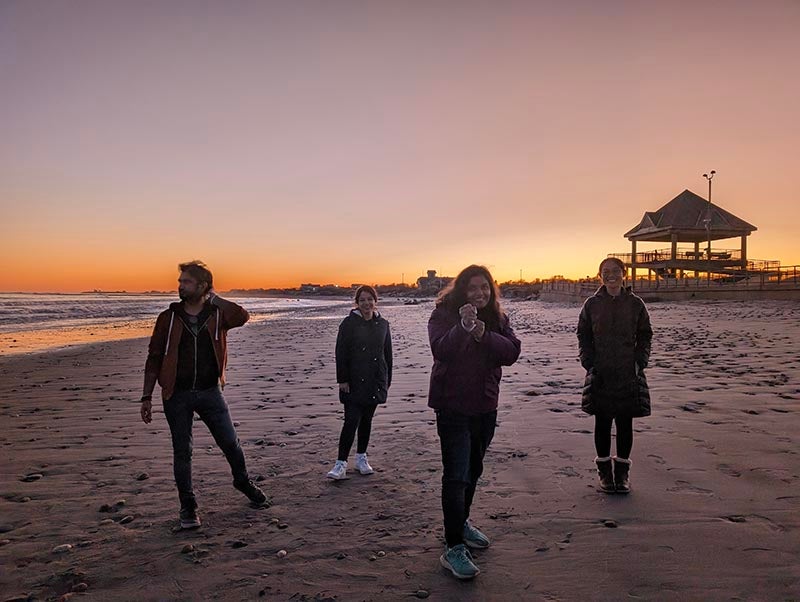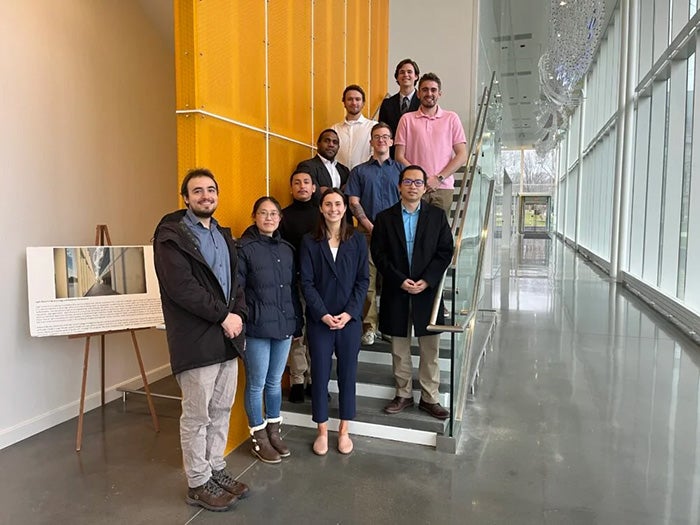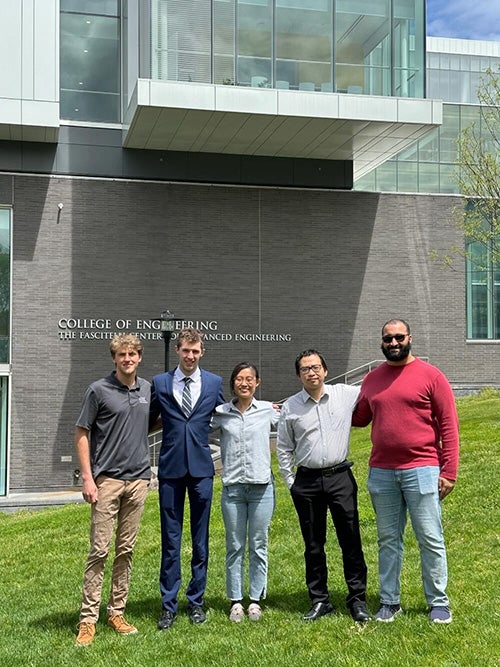When Liyuan Gong was deciding on pursuing a higher degree and returning to academia, her father had just passed away.
“It made me reflect on what I could do to make a meaningful difference. Pursuing further education was also part of my father’s wish for me and honoring that became a deep source of motivation,” said Gong, who graduated this spring from the University of Rhode Island with her Ph.D. in mechanical engineering.
During this period of transition, Gong, from Fuyu, Jilin, China, came across assistant professor Yang Lin’s lab. It was a newly established Microfluidics and Microsystems Laboratory in the College of Engineering and its research focus strongly resonated with Gong’s interests. “I saw an opportunity not only to grow as a researcher, but also to work toward goals that aligned with both my personal aspirations and my father’s hopes for my future,” said Gong.

Her primary research focused on developing engineering solutions to address the challenges of detecting and characterizing micro- and nano plastics. “I aimed to create tools that could bridge the gap between benchtop systems and field-ready devices for long-term environmental monitoring,” said Gong.
In particular, she explored the use of lab-on-a-chip and microfluidic technologies, which were a key focus of the lab. “These platforms hold great potential, not only for environmental detection, such as identifying micro- and nano plastics, but also for biomedical and health care applications, which align closely with my long-term research goals,” said Gong. In addition to environmental sensing, the lab used microfluidic systems to culture cells and create more realistic in-vitro models. This allows the team to investigate micro- and nano plastic toxicity in a biologically relevant context, paving the way for more accurate and high-throughput screening methods.

In the lab, she served as a part-time teaching assistant and a part-time research assistant. Uniquely, she wasn’t just an RA in the one lab but also worked as an RA at the Rhode Island Consortium for Nanoscience and Nanotechnology core facility. “I learned a great deal from my mentors there, assistant professor Irene Andreu and Matthew Cabral, director of the nanotechnology lab. These experiences were a true blessing, enriching my knowledge, expanding my skill set, and strengthening my professional network and career foundation,” said Gong.

“One of the most rewarding aspects of my Ph.D. was mentoring students. I had the opportunity to work closely with more than 10 undergraduates in our lab, and countless others in the nanotechnology lab,” said Gong. “To me, this was the most invaluable and fulfilling part of my journey, guiding students, helping them discover their interests, and watching them grow. It was through these experiences that I discovered my true passion for teaching and mentorship.”
Unlike the adrenaline-driven passion she had when she first entered her career, she says, “This deeper, more enduring joy comes from seeing students I’ve mentored achieve their goals. It’s a quiet but powerful motivation, one that helped me realize that becoming a professor is not just a career aspiration, but something I truly love and am committed to pursuing.”
Aside from personal connections, she also cherishes the moments when the team achieved important milestones in the lab such as receiving funding awards or special recognition. “Those moments made everything feel solid and real. They reminded me of how far we had come together,” said Gong.
During her Ph.D. program, she published 11 papers–including six as first author–comprising a book chapter, two review articles, and four original research papers. “One of my research papers received the Best Paper Award at the ASME Fluids Engineering Summer Meeting in 2024. I was also honored with the Graduate Student Scholar Award for our work on the bi-axial cell stretching system, one of the projects I’m most proud of,” said Gong.

That project reminded her of her time on the Formula Society of Automotive Engineers team, where she spent long nights in the machine shop with teammates who shared the same passion and drive. “It embodied the engineering spirit and sense of teamwork that I’ve always valued deeply,” said Gong.
She was involved with the URI FSAE team during the early part of her Ph.D., where she met some truly inspiring students all chasing their dreams. “It brought me so much joy to see the racing spirit alive and well at URI. I genuinely hope the team continues to grow and thrive, and I can’t wait to see them on the track someday,” said Gong.
Beyond publications and awards, she believes her greatest accomplishments are in the people she has supported—both undergraduate and graduate students. “Mentoring others, contributing to their growth, and being part of their journey has been the most meaningful and fulfilling part of my Ph.D.”

Now that she has received her doctorate, she will begin her postdoctoral training at the University at Buffalo in biomedical engineering, where she will challenge herself by diving deeper into the intersection of engineering and biology.
“This next chapter will allow me to expand my expertise, refine my research focus, and prepare me for a future faculty career,” said Gong. “Of course, I remain committed to continuous learning, sharing knowledge, and taking on new challenges with bold, innovative ideas. It’s a spirit I carry with me from URI: ‘Think Big, and let’s do it.’”
